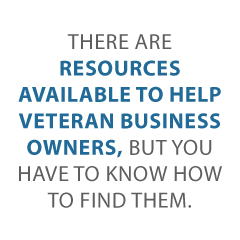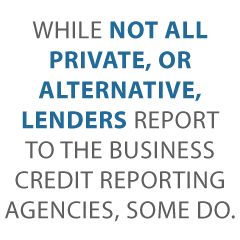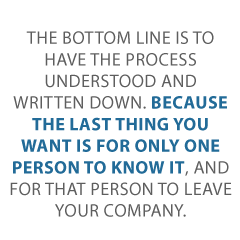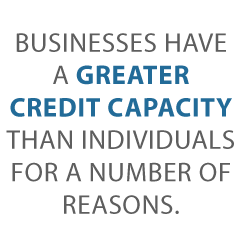The Hottest and Most Brilliant Business Tips for YOU – Keep Up and Be a Competitive Small Business and More
Our research ninjas at Credit Suite smuggled out ten amazing business tips for you! Be fierce and score in business with the best tips around the web. You can use them today and see fast results. You can take that to the bank – these are foolproof! Become a more competitive small business and succeed today!
Stop making stupid decisions and start powering up your business. Demolish your business nightmares and start celebrating as your business fulfills its promise.
And these brilliant business tips are all here for free! So settle in and scoop up these tantalizing goodies before your competition does!
#10. Map Your Way to More Sales
Our first jaw-dropping tip is all about building a sales process map. Mail Shake says “a sales process map outlines how your organization interacts with your buyer from attraction, engagement, selling, closing, and retaining.”
So the concept is to have a blueprint for dealing with your sales and your buyer. It is not the details or the ‘how’. It is the ‘what’. So if your organization has a step for a demonstration, that should be listed.
In fact, per the article, a lot of prospects get the demonstration too early within the process. How come? Because a lot of demonstrations are long and just plain not that interesting. So know when to make the demonstration. And then your buyer will actually be primed and ready. And interested. Talk about being a competitive small business!
But it all comes down to one thing. The bottom line is to have the process understood and written down. Because the last thing you want is for only one person to know it, and for that person to leave your company.
#9. Take Your Sales Efficiency to the Max
The next awesome tip is about achieving maximum sales efficiency. LinkedIn notes this comes down to two separate questions. In what way can you be more productive? And how can you make your time spent selling more efficient?
Essentially, the idea is not to work late – or at least, no later than you must. Rather, you need to spend the time you set aside as well as you can. Make it effective!
Say No and Own Your Time
This is perhaps the best takeaway from this article. What’s sapping your time and strength and energy? Is it doing anything good for you?
If it isn’t, then jettison it from your life.
And more importantly, learn how to recognize such piles of temporal quicksand, and steer around them in the first place.
We recommend checking out the last third or so of the article – the rest is more of an ad for a part of LinkedIn. You want to zero in on the quotes at the bottom.

If you are as passionate about succeeding in business as we are, please help us spread the word about how to take the plunge and save time and money – and your sanity! Stay a competitive small business!
#8. Oops! These Digital Marketing Errors Are Costing You Money
Our following life-changing tip concerns avoiding digital marketing mistakes that are costing you sales. G2 lays it all out for us. There are any number of mistakes but we’re only going to concentrate on one in this blog post. We’ve covered a lot of the others before and fairly recently. So we’ll just look at one.
The Absence of a Mobile Marketing Strategy
We cannot emphasize enough just how vital a mobile marketing strategy is! Consider this. How many times have you gone to a website while on your phone and been frustrated with how hard it was to get around and find things? And how many times have you wondered why there’s no app for whatever it is that you’re looking for?
Plus, how many times have you downloaded an app and then suddenly everything is so much easier? And while that’s great and all, it ignores one basic issue. And that is that the website should still be responsive to mobile. Yes, even in the presence of an app.
Plus a responsive website design makes it so much easier to accommodate all of the new tech that’s coming our way in the future. What, you thought your version of an iPhone or Android was the last one ever going to be made?
Think again.
#7. Get to the Point!
For our next sensational tip, we looked at building a profitable audience with specificity. Copy Blogger says that ultra-specificity in copy will help you sell more. Kind of hard to argue with that.
In particular, specifics rock headlines. How? Consider some of the more exceptionally memorable news headlines of all time:
- Ford to City: Drop Dead! (New York Post, 1975)
- The Filth and the Fury! (The Daily Mirror, 1978, talking about the punk group, the Sex Pistols)
- Ali Stings Joe, Wins Decision (New York Daily News, 1974)
- War Over! (The Dayton Herald, 1945)
Every single one of these gets to the point fast. Although you can argue the one from the Daily Mirror is a touch tangential. But paired with an image, it’s obvious what they mean. All of these headlines do it in 5 words or less.
That’s an incredible economy of words.
Four U’s
This section of the article is worth the price of admission all by itself.
“The Four U’s of headline writing, as outlined by American Writers and Artists Inc. (AWAI), are a helpful guide when evaluating any piece of sales copy or content:
- Useful
- Ultra-specific
- Unique
- Urgent”
Without urgency, you have nothing. After all, if you don’t have an interest in the local news in Dubuque, then who cares how awesome my headline is? And the corollary is also true. If the local news in Dubuque is the thing you want to read about, then I had better get that across in my headline. Otherwise, you just might miss it.
And that doesn’t do either of us any good, now, does it?
So check out the article in its entirety. It is well worth it!
#6. You’re Hired! Or, Rather, You’re Hiring!
This tip is so cool, and it works! All Business tells us all about hiring.
We highly recommend reading this article in its entirety as it makes some excellent points about, among other things, how good hiring can save your business a ton of money. So instead we’re going to concentrate on a point that they don’t quite make.
True Story Time
15 years ago (egad, it was that long ago?), your intrepid blog writer worked for a voice recognition company. The work was … okay. But the boss was terrific. And one day I asked her: how do you decide who to hire? And how did you decide to hire me? Keep in mind, I had absolutely no experience in voice recognition whatsoever when I was hired.
She said, “If all other things are equal, I hire the person who I feel is the most curious. Because they will learn new things and they will be diligent about finding mistakes and better ways of doing things.”
And so I leave you with this bit of wisdom. Hire the curious.
Thanks, Amy.
#5. Become and Stay a More Competitive Small Business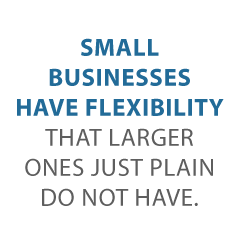
Grab this mind-blowing tip while it’s hot!
It’s all about being a competitive small business. So, can your business compete with the bigger companies out there? Or are you being left in the dust?
The Business Backer says a smaller business has some advantages, simply by virtual of its size. So use them!
Business Be Nimble, Business Be Quick!
It’s a great way to be a more competitive small business – and even a competitive small business versus a larger business.
Very large businesses can be entrenched in bureaucracies and layers of management. With all of these cushions, these businesses can end up with a lot of hands touching even some of the smaller decisions.
Committees can end up deciding on everything from the official company font to whether they’re going to start offering muffins for sale in the cafeteria. And that means they are also deciding on things such as how to change an approach to a prospect. It can be a hard, slow process for a large business to alter its advertising and marketing strategies.
You don’t have to do any of that. Rather, you’re quite possibly a committee of one. Your entire company can possibly meet in one room.
True story – your intrepid blog writer once worked for a company which could and did meet in a compact car.
So you can be faster. This also means flexibility. With fewer stakeholders, people might not be so married to your color or advertising campaign choices. If something is better, there are a lot fewer people to convince of that fact.
Small businesses have flexibility that larger ones just plain do not have.
Scratch That Niche!
Here’s another place where being small helps you. You are a competitive small business when it comes to niche marketing.
Being a small company means you can relate pretty directly to a small group of people. And that means a niche audience, almost by definition. If, say, you’re Marvel Comics, you pump out tons of comics and films all the time, to appeal to a myriad of tastes. But if you’re Mom and Pop Startup Comics, maybe you concentrate on just superheroes from Milwaukee.
If you can corner the market on people interested in your niche, your marketing, sales, and advertising will be easier and quite probably cheaper.
Don’t spray your shots!

If you are as passionate about succeeding in business as we are, please help us spread the word about how to take the plunge and save time and money – and your sanity! Stay a competitive small business!
#4. Bring Order Out of Chaos
Check out this spectacular tip, all about keeping order in your office. EO Network notes that a messy work environment will often negatively impact your performance.
Preach.
Our favorite part of this is that it can work for a home office or if you actually – shudder – leave the building.
Reduce Your Stuff and Find Homes For All of It
It all really comes down to those two things. What needs to stay? And what needs to go? In addition, what needs to move or be transformed?
Do you keep old drafts of writing? Do you have to? Consider this – you can probably get rid of nearly all of that or at least convert it to an electronic format. Even if you have to somehow prove you drafted a document or two or twelve, there can be ways of proving that without having to hang onto a ton of outdated drafts. Electronic signatures, anyone?
Photograph or scan anything which you know you’re going to need in an electronic format and recycle the rest of it. Good bye, chaos. Hello, space.
More space means you’ll find everything more quickly. And it also means you’re more likely to have the latest version of whatever you need – after all, you’ve stored or discarded the older versions, right?
Save your sanity and tame your office clutter!
#3. Brick By Brick, Build a Brand Strategy
It’s not your imagination: this winning tip can help you build a strategy from scratch. Young Upstarts tells us a brand strategy is a long-term plan to help you make your clearly defined goals and objectives. So this is, in a way, an expansion of our tip #10, going beyond a sales strategy and looking at everything in your business, from soup to nuts.
Discovering Your Business
As in, why does your business exist in the first place?
If you can’t answer that one easily, and explain it to others readily, then why should they trust you? Why should they do business with you? And why should they listen to anything you have to say.
Ouch.
Who Are You, Anyway?
What makes your brand and your business different from any other? Why should your customers and prospects choose you over any other business? What makes you a competitive small business?
So let’s consider an example from, of all things, the movies.
Moscow on the Hudson and the Confusing, Frightening World of Too Many Choices
This is a 1984 Robin Williams film, so if you have never seen it, don’t worry. The premise is that Williams plays a Soviet circus musician who defects. And life in the country where the streets are paved with gold is not so easy, he finds.
Here’s the only scene you need to worry about:
It’s less than a minute long. I’ll wait.
In this scene, Williams’s character goes to a small supermarket to get coffee. And, he’s confronted with a rich array of choices. Now, keep in mind that people for real who lived during the Soviet Era were often lucky to get coffee at all if they went shopping for it. Most of the time, there was just one form of coffee and you either took it, or you left it.
Two things happen here. One is that he reads off the names of several brands and types of coffee – espresso, decaf, etc. And the other half is how overwhelmed he is by the embarrassment of choices.
Both parts of the scene work for our purposes.
Brand Strategy and Identity
In the first part, did you notice how much you know about each of the brands he mentions? You may even think of their tastes and aromas. Or you might consider their prices or whether they feel ‘premium’ or ‘basic’.
All of these feelings and associations showcase the success of these various brands’ strategies. Their identities are well-known. But then there’s the other half of the scene.
It’s All the Same When You Don’t Know Anything About a Brand
And, that’s the character’s problem in a nutshell. For the character, no such associations have been made yet. And since that’s the case, unless it’s a generalized, obvious piece of information – such as price or caffeine amount – he knows absolutely nothing about any of the brands on display.
What you want is for your customers and prospects to make those associations from the first half, rather than become confused and frustrated by the overwhelming pressure to decide on something, anything.
A lot of that comes from how you execute your brand strategy. If you’re Sanka, you emphasize how having little to no caffeine is relaxing. If you make espresso, you emphasize the elegance and associations with Italy and bolder flavors.
So, what flavor of business have you got?
#2. Get Your Startup Out of Your Dreams and into Reality
Our second to last unbeatable tip can give you a new perspective on moving from inspiration to business reality. Startup Professionals reveals all about how to avoid being one of the over 75% of all startups which fail.
We’ll concentrate on three points.
Test and Test. Then Test Some More.
People aren’t just going to buy your stuff because of your good looks and charm. And testing with your family and friends is only going to get you a bunch of false positives. Instead, test with people with money to spend!
Because otherwise, they can’t buy your stuff.
Get Ready to Tell Your Marketing Story to Anyone and Everything
The article talks about what is essentially an elevator pitch. This is a bit like our tips #3 and #10 – you need to be prepared. And in particular, you need to be ready to talk to just about anyone about your product or service. How’s the easiest way to do this? Build a strategy. Don’t just try to wing it. That never works out like it does in the movies.
Put Together a Strategy for Growth and Improvement
That is, plan for success! And just as importantly, get ready for change. For if there’s one constant these days, it’s change. Embrace it before it knocks you over.
#1. Leverage Your Website and Improve Your SEO
We saved the best for last. For our favorite remarkable tip, we focused on an SEO audit checklist. Main Street ROI says there are a number of basic mistakes they see over and over again.
Don’t let your website be one of those error-riddled sites.
Clarity FTW
A clear and easy to follow website will do you a lot of good. It doesn’t just make your readers happy. It also makes search engines happy.
A well-organized website where the pages are easy to read and load fast will help out tremendously!
Another tip we loved is to essentially use as much of the free real estate you’ve got that you can. What do we mean by that? Basically, the idea is to put your keyword phrase or at least your website name in all of the places where you can.
We do not mean keyword stuffing. Rather, there are places such as the alt tags for your images. You know, the place where you tell a search engine what an image is about, to make it easier to index.
Are you using yours? Or did you not know what they were until this very moment? Or worse, had you never even heard the phrase until just now?
Organize your website and use the free spaces you’ve got to the max.
So which one of our brilliant business tips was your favorite? And which one will you be implementing now?

If you are as passionate about succeeding in business as we are, please help us spread the word about how to take the plunge and save time and money – and your sanity! Stay a competitive small business!
The post Keep a Competitive Small Business and More –10 Brilliant Business Tips of the Week appeared first on Credit Suite.



